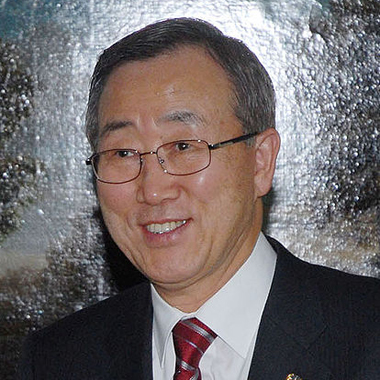Ban Ki-moon Mentions Human Rights in Tehran; Details Unclear

It is unclear what, if any, concessions Ban obtained from the Iranian leadership regarding the ongoing human rights crisis.
Speaking at the Iranian Foreign Ministry’s School of International Relations on August 30, UN Secretary-General Ban Ki-moon said, ”I have urged the authorities during my visit this time to release opposition leaders, human rights defenders, journalists and social activists to create the conditions for free expression and open debate. I also urge Iran to strengthen cooperation with the human rights mechanisms of the United Nations, in particular the Special Rapporteur. I have discussed this matter with your leadership.”
It is unclear what, if any, concessions Ban obtained from the Iranian leadership regarding the ongoing human rights crisis. His office has not released any specifics about the conversations he had with top-ranking officials, including President Mahmoud Ahmadinejad and Supreme Leader Ali Khamenei.
UN Special Rapporteur on Human Rights in Iran Ahmed Shaheed continues to await a visa to allow him to enter the country. As neither the UN nor the Iranian leadership have made any announcements about the status of his request, it remains to be seen whether there will be any movement on the matter as a result of Ban’s talks with Iranian officials in Tehran.
Ban’s spokesperson assured the international community on August 28 that he “intends to discuss human rights with the Iranian authorities, including at the highest level,” according to the Guardian. On August 29, Ban announced, “We have discussed how United Nations can work together with Iran to improve the human rights situation in Iran. We have our serious concerns on the human rights abuses and violations in this country,” according to the AP.
There were high expectations in the international and local Iranian human rights communities for Ban’s visit to Tehran. Before his departure from New York, hundreds of Iranian activists and academics submitted a letter to his office asking Ban to visit the two Iranian opposition leaders, Mir Hossein Mousavi and Mehdi Karroubi, who have been under house arrest for more than 18 months. (See the Campaign’s Timeline Project)






